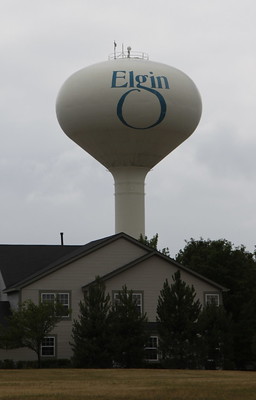Elgin Community College in Elgin, IL announced last week that it intends to build a new $80M manufacturing and technology center. The college will break ground on the 150,000 square-foot facility in September with completion anticipated in August 2026. According to outgoing ECC president David Sam, the area needs the facility to guarantee the long-term viability of its manufacturing sector.
The college will use a combination of state grants and reserve funds to provide $25M of the needed funds. ECC will issue $55M in general obligation long-term bonds to fund the remainder of the construction.
Fortunately, these bonds will require no tax increase* to the good taxpayers of Kane, Cook, McHenry, DeKalb, and DuPage counties. Elgin is roughly about the size of Ann Arbor, and ECC is about the size of WCC. According to ECC’s latest financial disclosure, it already has about $128M in outstanding bond debts on its books from four bond issues from 2013, 2019 and 2021 (x2).
(Go big or go home, I guess…)
ECC has an unduplicated headcount of about 13,000 students, and a credit hour enrollment of around 163,500. Its current in-district tuition rate is $135 per credit hour. To pay off the additional $55M in bond debt, the school would need to increase its enrollment by about 600 additional full-time students every semester for the next 30 years.
Totally do-able.
The greater likelihood, though, is that the ECC Trustees will raise student attendance costs by about $200 per year. Why ask the taxpayers to pay a few dollars more per year when you can just have the students cough up a few hundred dollars per year?
Community college students can’t afford new construction
Illinois’ community college funding model is similar to Michigan’s. A community college’s revenue streams include local tax collections, state funding, and attendance revenues, with a smattering of miscellaneous revenue sources from facilities rentals, grants, and vendor contracts. In all cases, the money has to come from somewhere.
When taxpayers – who agreed to support a community college – aren’t asked to invest, the money has to come from one of the other two major sources: state funding or student tuition. Like all other states, Illinois has to prioritize its capital project funding because it has dozens of higher education institutions that want a slice of the pie. In the case of this project, the state will chip in no more than about one-quarter of the needed funds.
That leaves the students to pay the bill for this new facility and the other $128M that ECC already promised to pay from its General Fund.
I guess community college students in Elgin must be pretty well off. The principal alone on ECC’s bond debts represents about $16 per credit hour for the next 30 years. That also assumes the inevitable tuition increases won’t scare off would-have-been students.
Relying on students to pay 100% of all construction costs for community college building projects is wholly inappropriate. This end-run funding method has to stop if community colleges want to survive. Ironically, when community colleges collapse under the weight of their own debts, district taxpayers end up footing the bill anyway.
Education is a public good; it’s ok to ask the public to pay for it.
*Provided that nothing goes financially wrong at the college over the next 30 years or so.
Photo Credit: jondoeforty1, via Flickr









